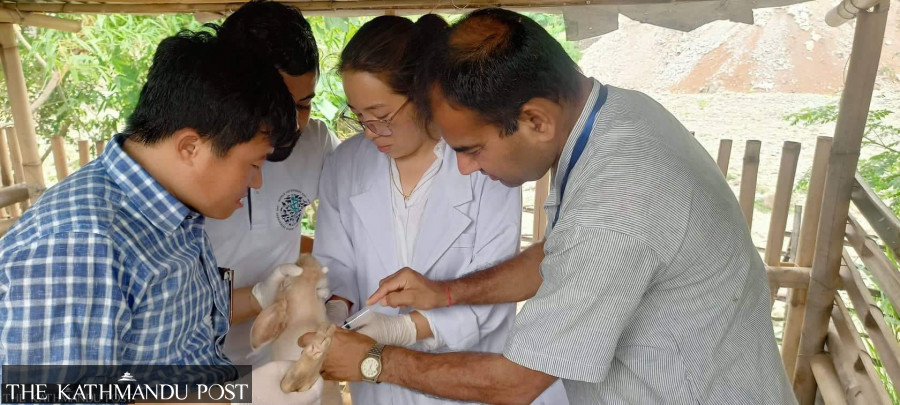National
Over 15,000 pigs died in African swine fever outbreak in Nepal since March
Nepal reported an infection of the highly contagious virus for the first time in May.
Post Report
Over 15,000 domestic pigs have died from African Swine fever since its first outbreak in Nepal in March this year.
Officials at the Department of Livestock Services under the Ministry of Agriculture and Livestock Development said the highly contagious disease has spread to several districts across the country and inflicted huge losses to farmers.
“Infection of the African Swine fever virus still continues,” said Barun Kumar Sharma, deputy director general at the department. “As there is no medication available against the deadly virus, we can just ask farmers not to transport sick pigs from one place to another.”
The outbreak of deadly pig disease has been reported in Kathmandu, Bhaktapur, Lalitpur, Kavrepalanchok, Chitwan, Sunsari, Jhapa, Morang, Bardia, Dang, and Kaski districts.
“Thousands of pigs have died of the deadly African swine fever,” said Dr Chandra Dhakal, information officer at the Department of Livestock Services under the Ministry of Agriculture and Livestock Development.
According to studies, African swine fever is a highly contagious viral pig disease. The virus is transmitted through direct contact with infected pigs, wild boars, and ticks.
The virus can also survive for several months in processed meat and several years in frozen carcasses.
The World Organization for Animal Health said that the virus is “not a danger” to human health, but it could have a devastating impact on the pig population.
Reports show that the virus may significantly impact food security as it spreads faster thus killing all the pigs in no time. Pigs are one of the key sources of food in Nepal.
There is currently no effective vaccine against African swine fever, according to doctors.
“The virus is highly contagious. It can have up to 100 percent mortality rate in pigs,” Dr Dibesh Karmacharya, chairman at the Center for Molecular Dynamics Nepal and Biovac Nepal.
“But there is no evidence of the transmission of the virus in humans.”
The virus is highly resistant in the environment, meaning that it can survive on clothes, boots, wheels, and other materials, according to reports. It can also survive in various pork products, such as ham, sausage or bacon.
The World Organization for Animal Health said that human behaviours can play an important role in spreading this pig disease across borders if adequate measures are not taken.
Experts in Nepal say there is no evidence that the virus has transmitted to humans and caused harm. However, it could inflict heavy damage to the farm sector.
"Each pig cost thousands of rupees and thousands died of the virus infection already," said Karmacharya. "Authorities concerned should announce schemes to provide relief to affected farmers."
The symptoms of the African swine fever in its acute forms are a high temperature, loss of appetite, vomiting diarrhea, and difficulty in breathing and standing.
The virus also causes abortion in pigs.
African swine fever continues to spread worldwide.
The disease has reached multiple countries across Asia, including China and India, the Caribbean, Europe, and the Pacific, affecting both domestic and wild pigs.




 9.83°C Kathmandu
9.83°C Kathmandu













